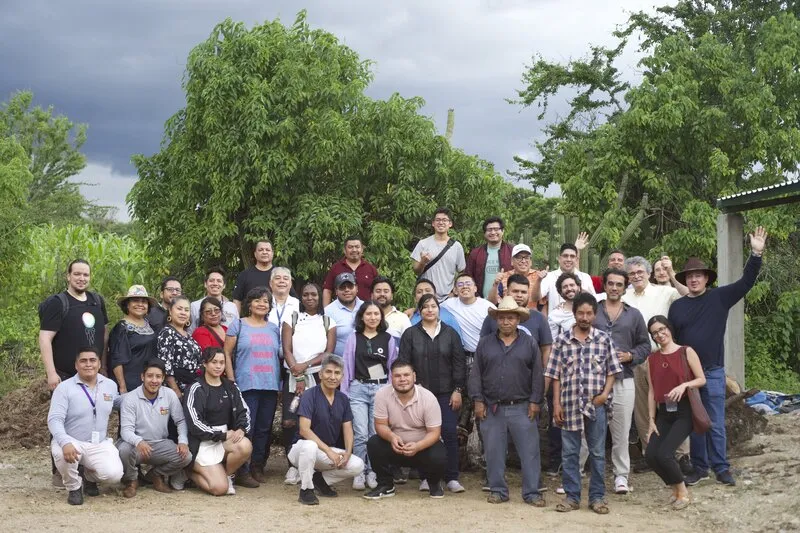
A Collaborative Work Week With People's Clearinghouse
Written by Max KurapovDuring the week of August 12th, five members of the ILF attended a work week hosted by La Cámara de la Gente, the People’s Clearinghouse (PCH) in the beautiful region of Oaxaca, Mexico.
After working several months with the team only remotely (across several different timezones), it was a great opportunity to get to work together in a coworking space in Oaxaca City. All together, we made up a group of 25 people across five different organizations, working in the same room to inch closer to a production deployment of a new remittance corridor between the US and 140 community banks in Mexico, using Rafiki, a Mojaloop switch, and integrations with core banking systems.
Day 1
The work week began with PCH giving us an early preview of their backend deployment: they showed us how a test transaction using our test wallet gets all the way through to an account at a community bank in Mexico, emulating a remittance from the US. In addition, they presented us with a demo of a WhatsApp integration, showing us how an account holder at a community bank in Mexico can confirm their balance and initiate domestic transfers, all secured with voice authentication. The ILF team was impressed with the demos, given how quickly the new developers at PCH could onboard and familiarize themselves with all of the involved technologies.
After the demos, we immediately focused on understanding the outstanding requirements for the Rafiki deployment, which is integral to the Cross Network Provider (CNP) — the term for the connection between US financial institutions and the domestic switch in Mexico. We thoroughly examined the code base, suggested improvements to enhance communication between the CNP and Rafiki, and compiled a list of essential features the PCH team needed in Rafiki to refine and optimize the end-to-end payment flow.
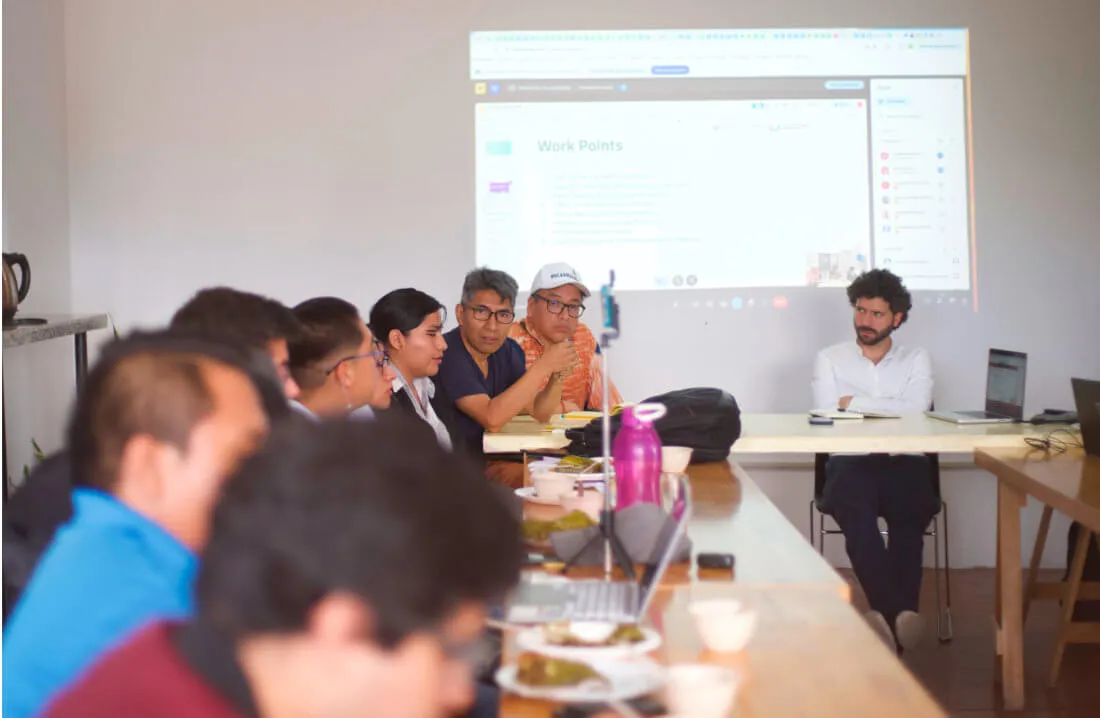
Day 2
During the second day of the work week, we focused on several key aspects related to the CNP: planning and initiating the production-level deployment of all of the components, advancing the next iteration of connectivity between the CNP and the Mojaloop switch, and integrating a reporting module into the system. The reporting module (essential for meeting regulatory and compliance requirements for money transmitters) is being developed with the help of Fintecheando - a Mexican organization which has experience collaborating in the open source world, particularly with Mifos, a familiar name within the ILF community.
Day 3
The majority of day three was primarily spent using whiteboards: diving deep into the settlement flows of the system, with a big emphasis on the relationships between all of the components. It was very helpful to have representatives from Conecta present, a company that helps organizations integrate with SPEI, Banco de México’s real-time gross settlement system, as well as Sinefi, a company that provides a core-banking solution to different financial institutions. Having all of the parties involved present and participating in the discussions provided everyone with a good understanding of each of the pieces required to make this project a reality. We also spent some time discussing how these flows related to liquidity management in Rafiki and the CNP.
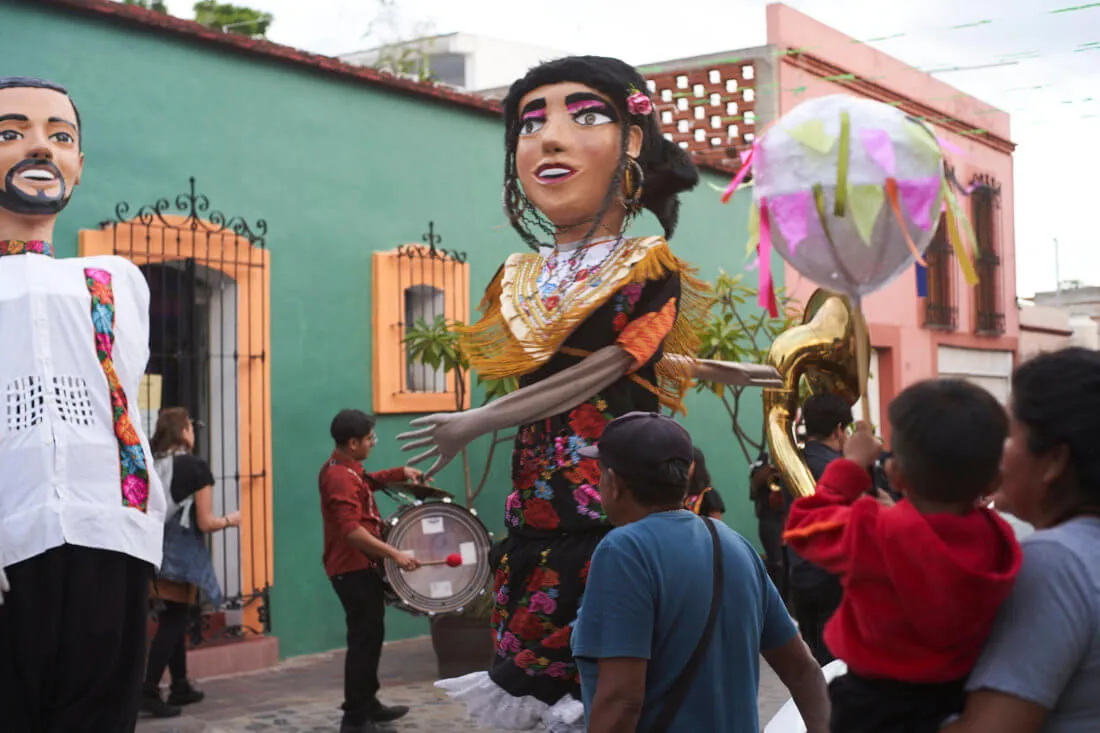
The end of the workday was marked by a lively surprise orchestrated by the PCH team right outside the coworking space: a band leading us on a parade through town — a calenda. Complete with monos de calenda—large, traditional paper-mache puppets—a variety of instruments, we followed the band through the streets. As we went, onlookers from restaurants and houses joined in, adding to the vibrant and festive atmosphere of the already colorful town.
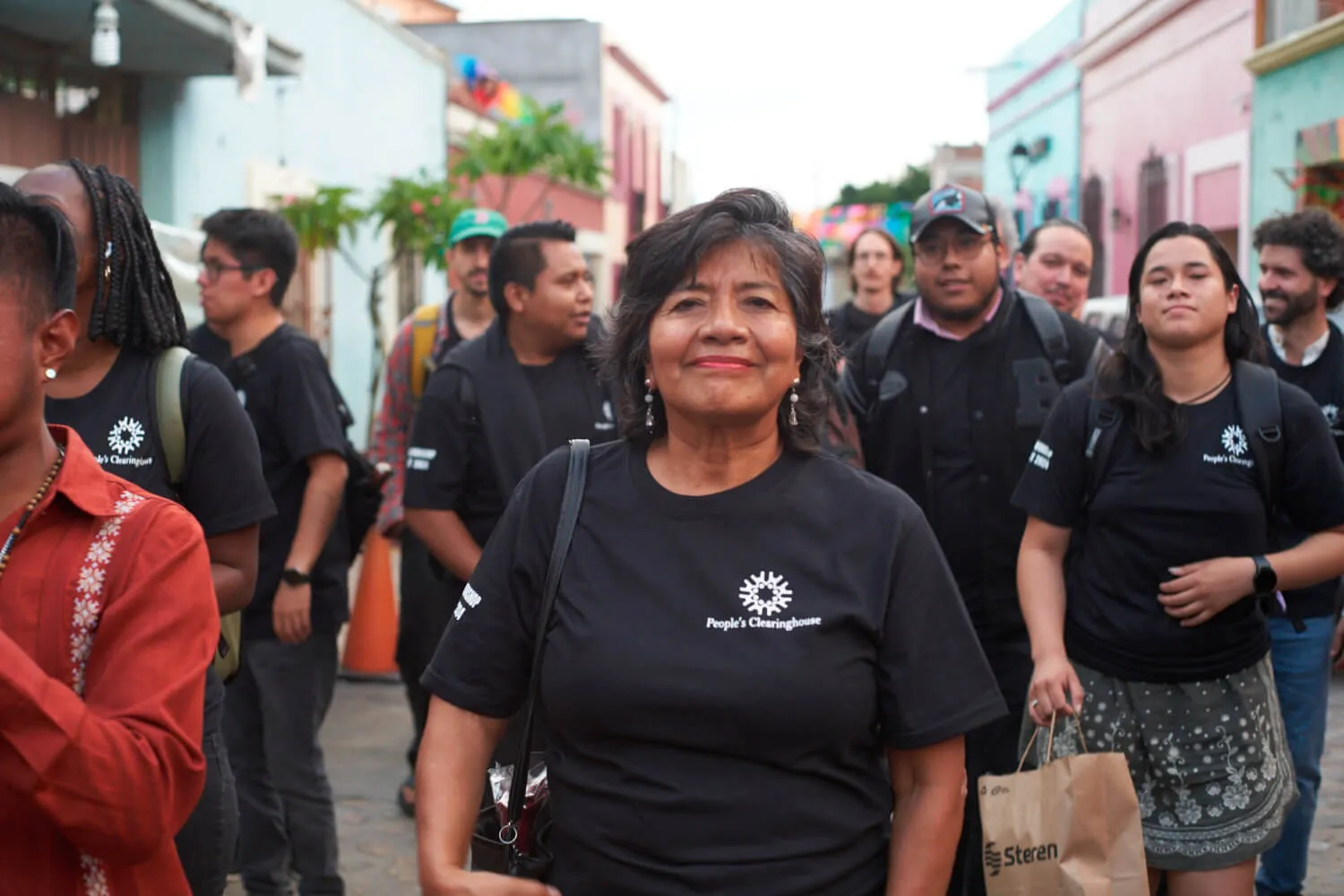
Day 4
The fourth and final day of the work week began with a quick retrospective on the past few days of work, as well as the creation of a plan for our collaboration in the following months – to the ILF Summit in October and beyond. Immediately after, we embarked on a tour of the community banks.
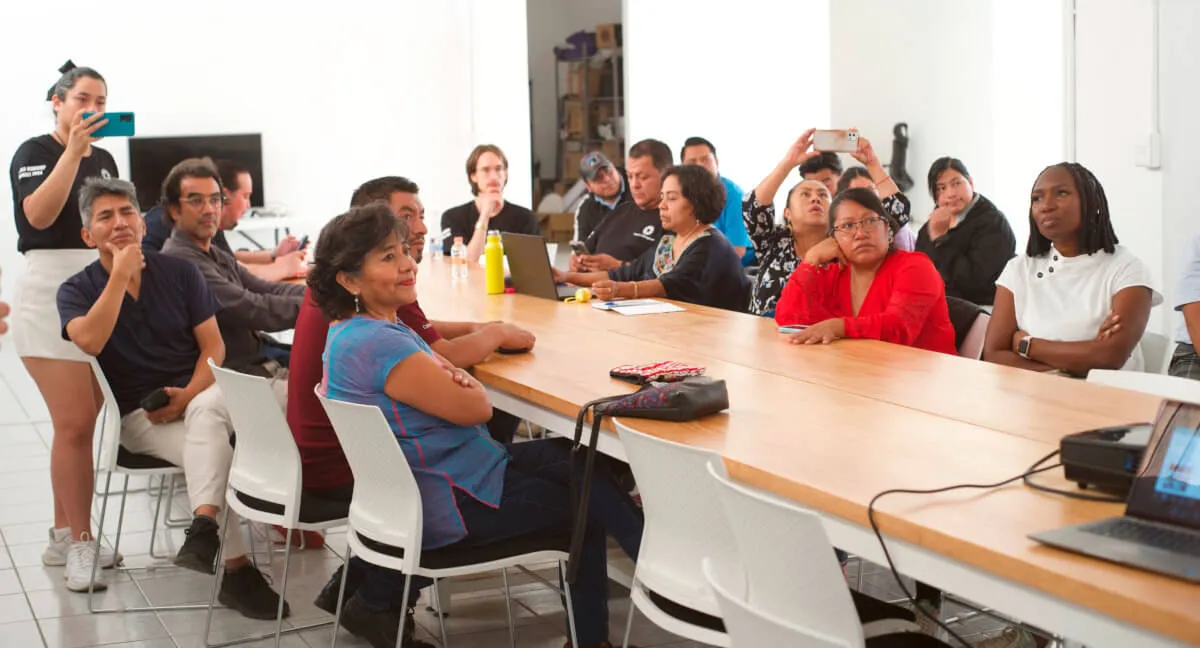
First, we visited the offices of Red Oaxaca, an organization that oversees a network of microbanks that provide financial services to families in the greater Oaxaca region of Mexico. They explained to us how the organization works, the people that they are aiming to help, and the current challenges they face when it comes to providing financial inclusion to predominantly rural communities.
We then proceeded to visit the offices of Acreimex, a savings and credit cooperative with 62 branches serving 425,000 accounts. We saw a few presentations about how the organization has grown, and what the future holds for them, particularly when it comes to digitalization of financial services.
Continuing our journey across Oaxaca, we drove about an hour and a half to a much smaller town, Ejutla. Here, in the middle of a street market, we were welcomed by members of Red Oaxaca at a local banking branch. Visiting this branch enabled us to understand first-hand the day-to-day banking experience of people in rural communities. One of the tellers at the branch explained in detail how they register transfers, how they provide loans to customers, and how they do reconciliation – particularly during times when there isn’t a strong enough internet signal to connect to the core banking system. This visit gave us valuable insight into the dedication of the people of Oaxaca to advancing financial inclusion, even in the face of various challenges.
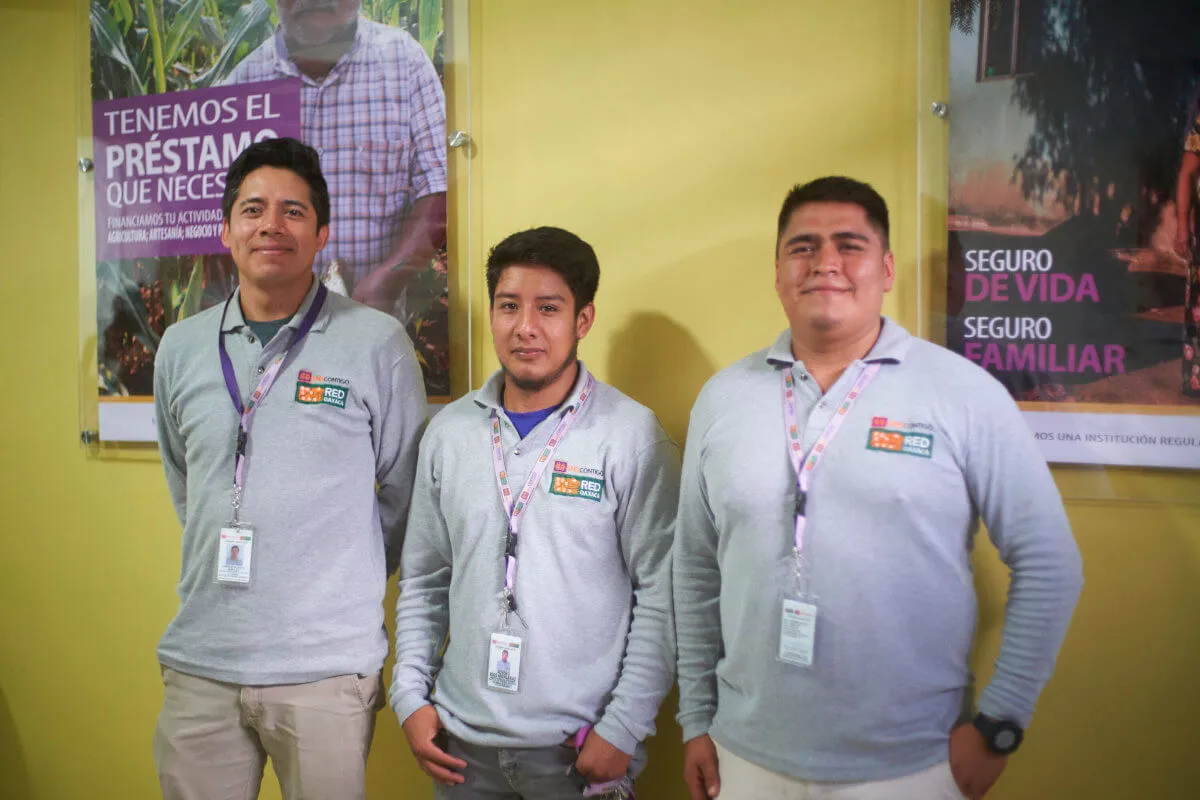
In the late afternoon, we visited a member of the local community bank, a mezcalero – an artisanal mezcal producer. He gave our large group an insightful overview of his farm and explained the traditional process of mezcal-making, from harvesting the agave plants to distillation. His story is a direct example of how microbanks support local communities: a business loan from Red Oaxaca is enabling him to expand production and ensure the sustainability of his business.
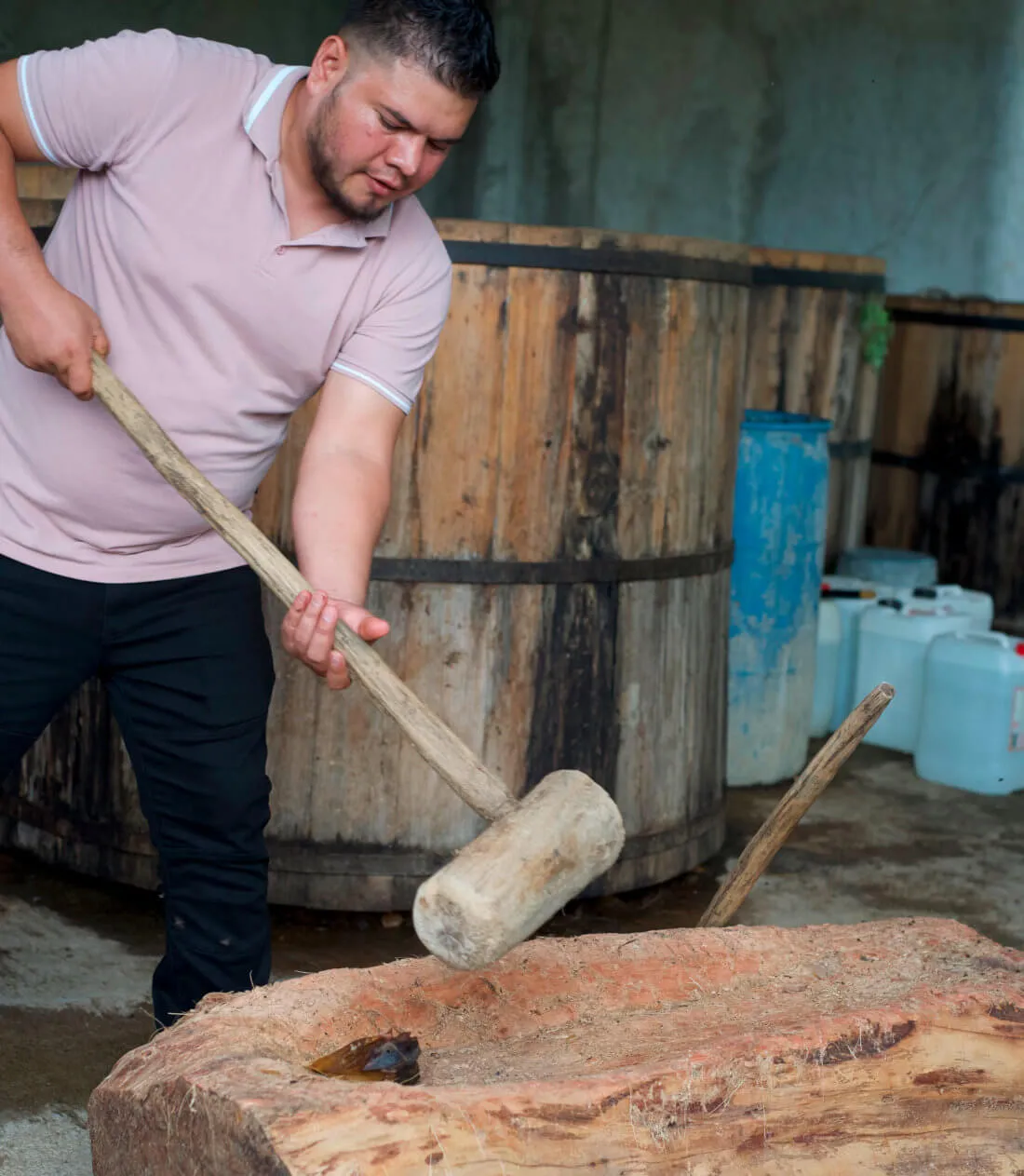
With this, the work week came to a close. Our time in Oaxaca was full of hard work, productive discussions, and a richer understanding of the local context through interactions with people in the region, all working together towards the common goal of financial inclusion. We at the ILF greatly appreciate the hospitality of the People’s Clearinghouse during our visit!
For a comprehensive demo and presentation of all the work that has been done, as well as future plans, the People’s Clearinghouse will be presenting at the ILF Summit in Cape Town, 26-27 October.
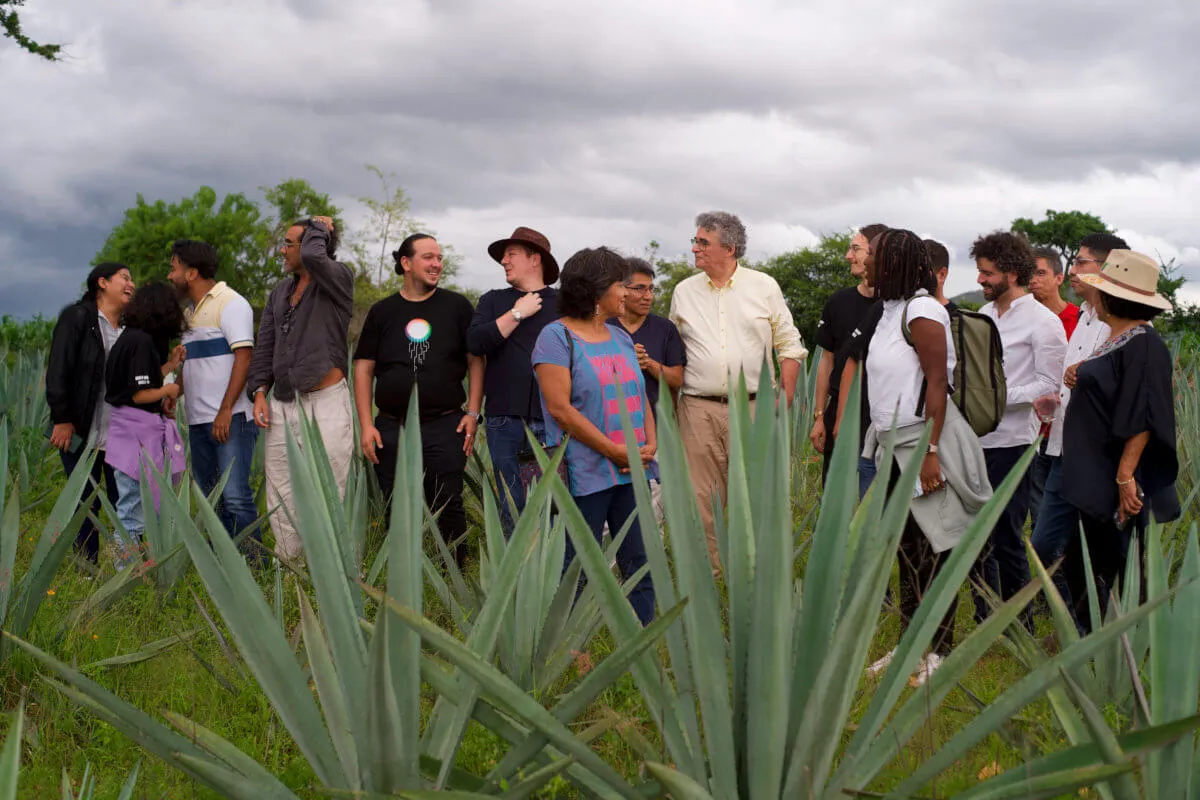

As a software developer at the Interledger Foundation, Max builds open source tools and APIs that provide developers & institutions access to the Interledger network. Before joining the Foundation, Max spent 5 years working at startups: one of which a Fintech company, where he was one of the leads on the card payments processing team.